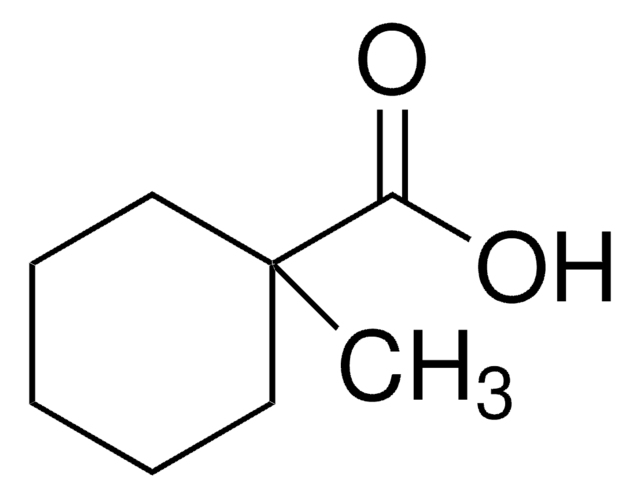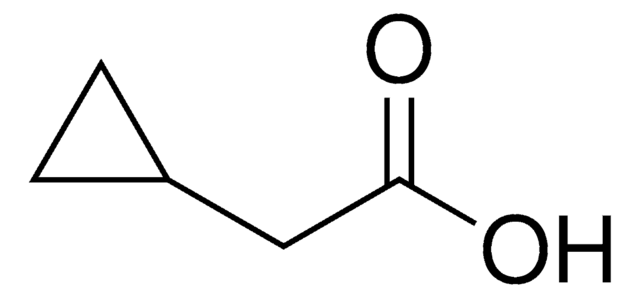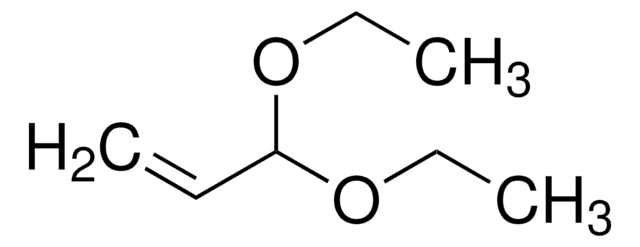All Photos(3)
About This Item
Linear Formula:
CH3C3H4CO2H
CAS Number:
Molecular Weight:
100.12
Beilstein:
2039384
EC Number:
MDL number:
UNSPSC Code:
12352100
PubChem Substance ID:
NACRES:
NA.22
Recommended Products
Assay
98%
form
solid
bp
183-185 °C (lit.)
mp
30-32 °C (lit.)
functional group
carboxylic acid
SMILES string
CC1(CC1)C(O)=O
InChI
1S/C5H8O2/c1-5(2-3-5)4(6)7/h2-3H2,1H3,(H,6,7)
InChI key
DIZKLZKLNKQFGB-UHFFFAOYSA-N
Looking for similar products? Visit Product Comparison Guide
Application
1-Methylcyclopropanecarboxylic acid was used in the structure-activity studies of small carboxylic acids (SCAs). It was also used in the identification of selective orthosteric ligands for both free fatty acid receptor 2 (FFA2) and free fatty acid receptor 3 (FFA3).
Signal Word
Danger
Hazard Statements
Precautionary Statements
Hazard Classifications
Skin Corr. 1B
Storage Class Code
8A - Combustible corrosive hazardous materials
WGK
WGK 3
Flash Point(F)
183.2 °F - closed cup
Flash Point(C)
84 °C - closed cup
Personal Protective Equipment
dust mask type N95 (US), Eyeshields, Gloves
Choose from one of the most recent versions:
Certificates of Analysis (COA)
Lot/Batch Number
Don't see the Right Version?
If you require a particular version, you can look up a specific certificate by the Lot or Batch number.
Already Own This Product?
Find documentation for the products that you have recently purchased in the Document Library.
Customers Also Viewed
Johannes Schmidt et al.
The Journal of biological chemistry, 286(12), 10628-10640 (2011-01-12)
Free fatty acid receptor 2 (FFA2; GPR43) is a G protein-coupled seven-transmembrane receptor for short-chain fatty acids (SCFAs) that is implicated in inflammatory and metabolic disorders. The SCFA propionate has close to optimal ligand efficiency for FFA2 and can hence
Brian D Hudson et al.
FASEB journal : official publication of the Federation of American Societies for Experimental Biology, 26(12), 4951-4965 (2012-08-25)
When it is difficult to develop selective ligands within a family of related G-protein-coupled receptors (GPCRs), chemically engineered receptors activated solely by synthetic ligands (RASSLs) are useful alternatives for probing receptor function. In the present work, we explored whether a
Our team of scientists has experience in all areas of research including Life Science, Material Science, Chemical Synthesis, Chromatography, Analytical and many others.
Contact Technical Service















